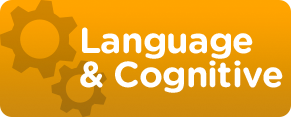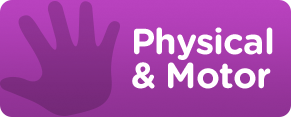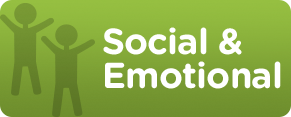Three is that wonderful age when your child – although still very little and cute – has begun to truly express themselves and explore the world more independently. You will be amazed at some of the things your three-year-old can say and remember, so be sure to keep those diaries and video cameras handy!
Here are some typical milestones you may see in your three-year-old:

Language & Cognitive Development
- Handles three word sentences easily; using pronouns (I, you, me) and some prepositions (in, on, under) correctly
- Roughly 90 percent of speech is understandable; however, may go through a phase of normal stuttering
- Loves books and can converse about them during story time
- Interested in reading and identifies a few letters of the alphabet – especially those of own name
- Thrives with a regular schedule and routine and is capable of keeping attention for no more than a few minutes
- Able to count two to three objects
- Understands “if-then” statements, like “If you drop an egg, then it will break”
- Understands “yesterday”, “today” and “tomorrow,” but little sense of time beyond this

Physical & Motor Development
- Jumps and hops by themselves
- Walks upstairs alternating feet and downstairs leading with one foot
- Pedals and steers a tricycle
- Undresses self, but still needs help dressing
- Stacks up to ten blocks in a tower
- Is able to draw a circle

Social & Emotional Development
- Knows own age, gender, first and last name
- Attached to parents and other family members, but stranger anxiety has begun to diminish
- Shifts mood relatively
- Throws tantrums on occasion when tired or hungry
- Imitates parents (e.g., shaving or talking on the phone)
- Engages in pretend social play (”You be the mommy, I’ll be the daddy”)
- Enjoys peers, but play is “parallel” – rather than truly interactive
- Begins learning to share and take turns
Remember your child is a wonderful, unique individual and may not exhibit every one of these milestones. A wide range of behaviors is considered normal and some children will demonstrate certain abilities earlier or later than this schedule. Should you have any concerns about your child’s progress, please ask your pediatrician or family physician.






